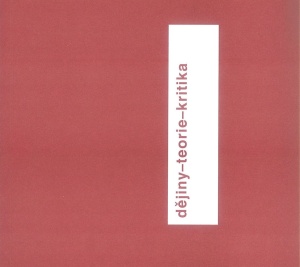Mimo řád: Genealogie zrůdnosti
Out of Order: Genealogy and the Monstrous
Author(s): Margrit ShildrickSubject(s): History
Published by: Univerzita Karlova v Praze - Fakulta humanitních studií
Keywords: genealogy; anomalous body; discursive constitution; monstrous
Summary/Abstract: In this paper I put the question of anomalous embodiment centre stage, and look particularly at the problematic relation between the historical meaning of the monstrous and its imbrications with disability. I revisit assumptions both about the parameters of disability and about its historical antecedents. I rely on the tools of a quasi-Foucauldian genealogy to problematize the received history of the disabled body. I argue that alongside the historical transformations in the meaning of the monstrous and up to its present day manifestation in disability, there is another current of interior processes, which not only challenge the periodization in historical thought, but also supplement – although not displace – Foucault’s discursive approach. Such insights may help us understand the implicit violence that marks the encounter with the anomalous body, whether it is considered monstrous or disabled. In the hostility, evasion, and, paradoxically in the fascination that greets morphology out of order, we might sense self-recognition. What is undeniable is that the ambivalence, and its associated anxieties, which marks a recurrent pattern in discrete historical moments – albeit ones shaped by highly variant contingencies – bristles with unease. Where the boundaries of absolute difference inevitably fail, then those too-familiar others whose bodies are disordered will be invested with all the anxieties and fantasies that operate at a socio-cultural, interpersonal, and ultimately an intra-psychic level. As such, the modern day category of disability, as a variant on the monstrous, is a highly complex and intrinsically ambiguous designation that cannot be addressed adequately by positivist and binary based models of analysis alone, whether of biomedicine, or of social construction. Whilst having no pretensions to articulate an ultimate truth, any genealogy of the discursive constitution of the anomalous body must engage with it as the site of multiple cultural and psychic investments.
Journal: Dějiny - Teorie - Kritika
- Issue Year: 2011
- Issue No: 02
- Page Range: 189-202
- Page Count: 14
- Language: Czech

